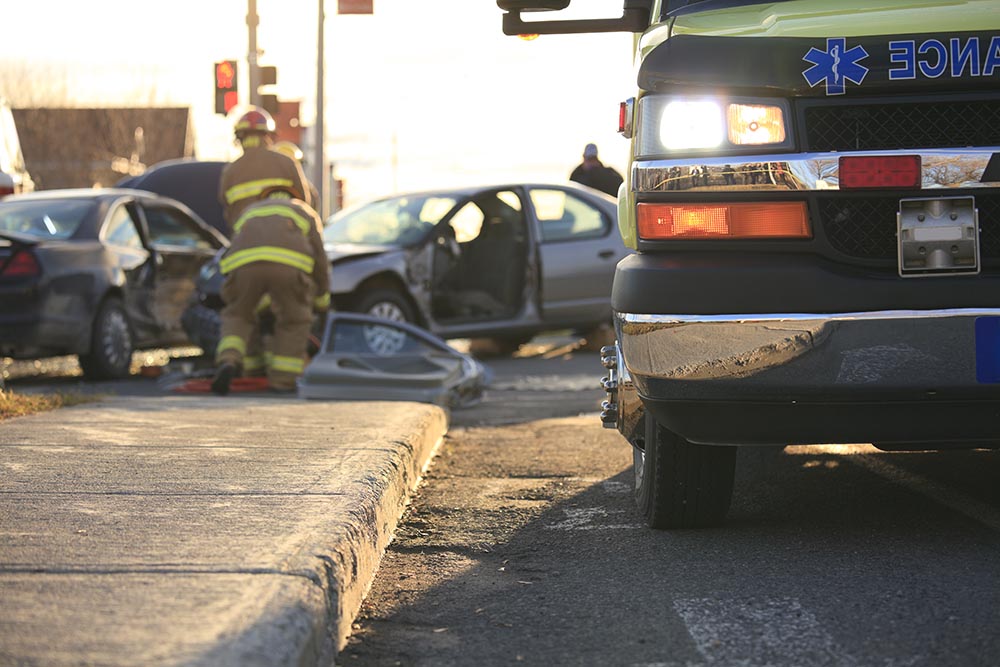Car accidents can occur at any time, even on vacation or while visiting family in other states. People involved in the other state accident can put more stress and strain. Learn what steps you should follow when you are in an out-of-state car wreck.
Steps to Take After the Accident Happens
The following actions should be implemented after any car accident, whether it’s in your home state or another state:
- Call 911 or contact the police.
- Seek immediate medical attention.
- Get the contact information, copy of the auto insurance card of both drivers and any witnesses. It is important to get the witness information as the police officers sometimes do not gather or fail to put it on the police reports.
- Take as many photographs as possible of the accident scene, damage to all vehicles involved, and any visible injuries.
- Call your own auto insurance carrier and report the accident.
- Keep a detailed record of all medical bills, lost wages, and a diary of pain and suffering.
- Do not sign anything and provide medical records, record yourself, or cash out any checks. Not unless you want that to be your final settlement offer until you’ve consulted with an experienced personal injury attorney.
Car Insurance Coverage and Statute of Limitations
The amount of insurance or policy limits the at-fault driver is may be different from Missouri or Kansas insurance requirements. Further, you may be concerned that your car insurance will not fully cover you in other states because of the different policy limits in that foreign state. The time limits to collect from the negligent driver’s insurance policy vary from state to state. Here is a chart that provides deadlines for each state’s Statute of Limitations. Do not rely on this list, check the state statute to make sure that the deadlines for filing are current. Please be aware that some states only allow 1 year from the date of the accident to file a lawsuit or resolve the claim.
Understanding No-Fault State Insurance Systems
Some states have laws regarding no-fault insurance. No-fault insurance states require every driver to use first their own insurance policy to pay for damages related to an accident. Even if they were not at fault for the accident. The states that are no-fault or modified no-fault insurance states are Florida, Hawaii, Kansas, Kentucky, Massachusetts, Michigan, Minnesota, New Jersey, New York, North Dakota, Pennsylvania, and Utah.
Comparative Fault and Contributory Negligence
Different states handle the fault in different ways. Some states have a pure comparative fault formula, modified comparative fault, or contributory negligence way of calculating fault for injuries. Visiting an experienced personal injury attorney can help you understand how your fault and compensation can be handled in different states.
Contact an Experienced Car Accident Attorney
If you were in an out-of-state car accident, you may feel shocked due to the different laws and ways that car accidents are handled by insurance companies or courts. However, if you were a victim of someone else’s negligence, you still have a right to compensation. Contact an experienced personal injury attorney at Griggs Injury Law at (816) 474-0202 today. Find out how we can help you build a strong personal injury case.


